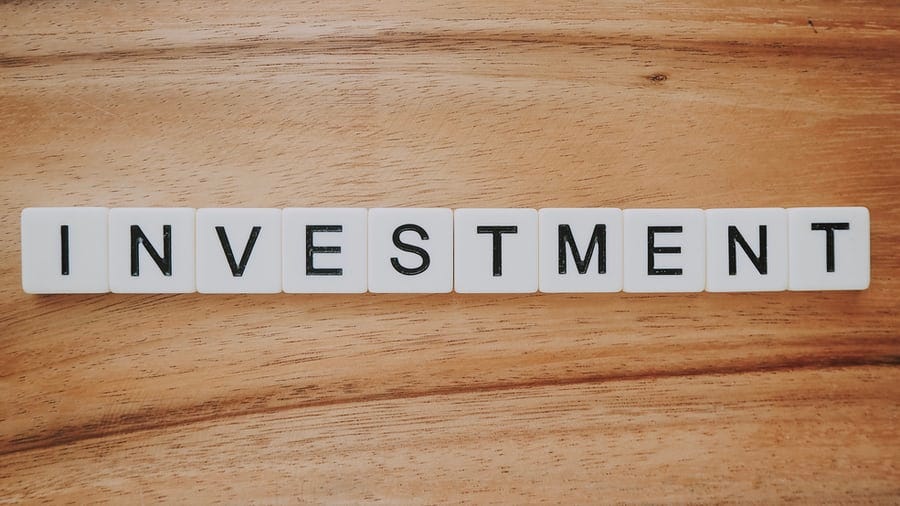The most powerful force in the markets is compounded returns.
Through the dollar-cost-averaging (DCA) approach which entails depositing a reasonable amount of funds in incremental amounts into your portfolio, you are more likely to earn a higher percentage in your portfolio over time than dumping a lump sum inheritance or lottery win once in a while.
This is all a result of following the spirit of the 8th wonder of the world: compounding. Most assume they know what compounding is since it sounds obvious compared to other financial metrics from DCF or EPS yet do you really know what it is? In your portfolio, it can make your life easier knowing it.
Compounding is interest earned on top of earned interest. You don’t make more simply investing consistently. You are making more on top of what you’ve already contributed that makes a difference. You make a return off the return through the power of time. This directly correlates with age. We tend to lower our risk tolerance, meaning higher equity exposure that comes with volatility as we age since we have a shorter time horizon to recoup the losses.
Yet it’s not uncommon to see your income rise as you age. Ideally the more experience, exposure, and time you spend in the industry or your company, the more recognized and valuable you are as an employee. Skills, age, and experience tend to correlate with earnings potential. If you have the opportunity to earn equity compensation through stock options through your employer, that is a truly golden opportunity. It is almost as rewarding as earning passive income through your rental or side-hustle. Not as free but getting there. Once you have another source of income tied to the markets, you not only have more freedom and flexibility with your saving, investing, and spending, you should be focused on your risk tolerance as well to guide those investments in the right direction and take advantage of what you can, while you can to earn more than ever before!
Unfortunately, high-earners tend to do the opposite and instead focus less on their personal portfolio breakdown as their work becomes more demanding. This is certainly beneficial to keep the earnings flowing but they waste an opportunity to adjust their portfolios at the most opportune time. Firstly, when their pay increases, they feel inclined to take more risk but appreciate the value of their sweat and tears and tend to lean towards two options:
-Hiring a portfolio manager to take the guesswork out
-Manage it themselves but stay within the same allocation split or increase their conservatism in their investments to make the good times last longer
In both cases, an employee who works in any industry, especially financial services must report their outside income sources and financial holdings where they are not allowed to invest on their own through active trading working at the firm. Since they aren’t able to deal with their holdings and manually rebalance periodically, they either have their company invest on their behalf, work with an external money manager, or lock up their holdings while working which leads to potential loss in portfolio returns during their highest-grossing years. Sure a manager can allocate their portfolio to their liking and should work in their clients’ best interests, but higher-earners tend to rely on their portfolio managers to do it for them as it is their full-time job or they show a lack of interest once their salary increases which tend to occur when business is doing well and hours become longer.
Now, higher pay is truly a blessing for obvious reasons. In terms of rebalancing sake and our largest ongoing liability-taxes, it is just a minor inconvenience for those who would get sidetracked by work and miss out on potential gains in their portfolio. Spending is easier than saving-another dilemma higher-earners without a financial literacy background get trapped in. This is certainly not as problematic as not being able to invest more but equally as silly since spending more means one cannot invest more of their paycheck. Age is a vital factor for determining risk tolerance but don’t let your earnings potential fool you. The more of your income invested, at least 20%, the more return can be available with less work as well.

Earnings and Surprises
Speaking of lump sums and unexpected surprises, your risk tolerance most likely won’t change within your portfolio after depositing but your perspective, wants versus needs, and lifestyle may. Don’t get too delusional or upbeat about a higher paycheck. As they say, don’t make the highs too high or the lows too low. As humans, we get used to everything and will never be satisfied. It usually ends up worse than where you started without any with a poor spending plan.
The more one earns, the more they tend to spend but it also becomes much easier to save and invest more than half of their earned income. The top 10% reinvest the most since essential goods take up the smallest percentage of their overall earned income. That savings typically translates into investing a higher percentage of their take-home pay. With November recording a record quit rate of nearly 5 million Americans, it’s becoming increasingly harder for employers to attract top talent. The best way to do so is with higher pay. Even with Pelotons, longer PTO, and juicy bonuses, workers have longed to forge their own path since the pandemic began.
All of us are wondering, where have employees gone?
I’m sure you aren’t alone and have taken time to reassess your lifestyle during the pandemic, more like a never-ending endemic. While jobless claims and unemployment are high, quit rates are as well. This is extremely unusual and these figures rarely line up. People have seriously considered their priorities, work-life balance, and planned for their future better.
This high quit rate certainly indicates a strong, secure economy where Americans have the opportunity to have the choice, not the push, to choose where they want to work and spend 80% of their working hours or ideally less.
But a high quit rate also indicates their risk tolerance and their financial means have changed.
In the spring of 2020, fiscal and monetary stimulus measures supported Americans to get back on their feet. This propelled the economy out of a recession that lasted a brief month or so and lifted employment, job openings, wages, and the opportunity to invest in oneself with extra cash and cheap borrowing rates on hand.
The Fed left the punch bowl open with low-interest rates and QE to boost economic activity. Per usual, those who took advantage of it the most were those who were already pretty well-off, the affluent who invested, purchased, and relaxed even more. With cheap borrowing, they could buy even bigger homes and invest in alternatives such as NFTs, meme stocks, crypto, farmland, and more real estate which helped pump more liquidity into the economy. Not to mention, a new Generation I was formed within the retail trading short squeeze meme frenzy back in January 2021.
By the end of 2020 with the stock market at all-time highs and the vaccine rollout into 2021, the economy had rebounded at a rapid pace yet the Fed still wasn’t convinced. Within a year, we had gone through a bumpy road and deja vu hit us once again. Thankfully for our wallets, savings rates soared to their highest levels not seen since WWII to almost 40%, the Great Resignation took shape, millions of new investors were formed, people started participating in the gig economy, got their time back, and most importantly, they reassessed their lifestyle. Instead of the Great Resignation, it was more of a Great Realignment.
With healthy savings, cash cushions, and pent-up demand, hyperinflation aroused and deepened supply chain constraints further. Although far from transitory, I believe they will cool off but Americans are truly relentless and it may take longer than anticipated. Nevertheless, more Americans report being in the best financial situation of their lives. I hope this rings true for longer as we already see national savings rates plummet back down to almost 10% in Dec 2021! Yikes!

Pay-Check To Passive Income
There’s nothing more regretful than knowing your human potential and capital were wasted. Physically working for your time will make you a slave to money forever. Once you can add any type of passive income ideally through the markets as an inflationary hedge, natural diversifier, and safeguard, you will already feel freer.
With as little as a few dollars, you can get started investing today. Time in the markets beats timing the markets so put that side hustle down and invest instead to work for you not against you. First in yourself, then in the markets. The fun thing about investing is that markets are unpredictable. No one has a crystal ball and prior experience and performance go out the window. Who knows if more = better in terms of investment knowledge, but at least more time never hurts.
The gig economy is real. I don’t know anyone my age who isn’t either a solo entrepreneur, looking to be one, or doesn’t have multiple side-hustles going on. It is a lucrative 24/7 business since there is no pay ceiling for making money online. Plus the best feeling is to make your own money. There are definitely pros and cons to working for an employer versus on your own and it is durable to handle both if you have the stamina and are willing to be dedicated. Knowing you have full control over how much you earn and that it correlates with effort and reward is freeing.
Here are a few common pros and cons of being an entrepreneur and an employee:
Employee:
Pros:
-Work with a collaborative diverse group of teammates
-Continuously work on different projects and meet new clients
-Inspire and learn from others-nourish incredible lasting connections
-Business travel, food, activities, event perks and IPO potential
-PTO
-Subsidized health care, disability insurance, life insurance
-More balance in work/life set hours easier time to unplug and know you’ll still get paid
-Potentially more stability and security with earnings-easier to apply for a loan/mortgage or buy a co-op with credibility
-Stock options-equity based compensation option for top management positions
-Tax-advantaged treatment accounts an employer will match for you guaranteed if employee contributes to the max
Cons:
-Pay limits(ceiling)
-Higher-income = higher marginal tax bracket position
-Potential hierarchical system
-Lack of work-life balance-no family time
-Possible chronic illness, ailments can arise (sitting = new smoking), lack of sleep
Entrepreneur:
Pros:
-Work for yourself
-Delegate, control and choose what you want to do when you want to do it
-Can work anywhere, anytime
-Save time = money, commuting, eating out, etc.
-Can reinvest earnings back into business -ability to put yourself in lowest tax bracket
Cons:
-No steady income streams-first few months no cash flow
-Each quarter and or month different pay not steady or guaranteed to continuously rise
-”Quit a 9–5 to work 24/7”
-Harder to shut off and find balance-distractions such as childcare
-There’s always more you can and should do especially at home!
-No ongoing collaboration and frequent isolation at times
-Potentially drained and burnout more easily especially with limited interaction
Nothing is completely ideal and we all have to compensate for something. A job is a job. It isn’t meant to be easy and instead stretch your limits and help you grow. If everything was comfortable or 1 path was perfect for us, we would soon get bored and feel worthless.
Be grateful you get to work somewhere and see what you are capable of!
No kind of earnings is guaranteed to last. If you are offered stock options as part of your compensation, it is suggested to limit any additional portfolio exposure to that company. If it sinks, your net worth will follow. No matter how mature and stable it may be, with one uncalculated bet, it can go under. Although staying invested consistently returns more over time, it is as volatile as working anywhere else. To combat instability, add more income sources, diversification, lower your cost of living, and reinvest.
If you don’t want to tackle a rental property or write a book, the least you can do is invest! It will take the least amount of work unless you are a day trader and in that case, prepare to lose more than what you started with.
My ideal situation is to be able to delegate and have a mix of various streams of income. I’m slowly getting there. As a manager of a rental property, it is fun work but I wouldn’t want to do this full-time, only on the side. Believe it or not, doing one activity may get boring after a while so being able to look forward to having another recurring passive income stream to grow is fulfilling. Consulting or mentoring on the side can easily turn into a full-time job. One must have a certain perspective, enthusiasm, and dedication to be able to handle many tasks and pace themself, or else they can get burnout easily. If it’s taking away results and opportunities from your main role, it is not suggested to continue. Put 110% into what matters and what will keep you afloat first.

Tolerance = Earnings?
I’ve found as we tend to add on more to our plate and increase our income sources, our risk tolerance sways out of the risk-averse zone and more into risky investments. Just because your portfolio returned over ~27% this year or above doesn’t mean you are an expert. Don’t get too exuberant that you end up sabotaging your success.
It is logical when one earns more, they not only have more to reinvest but the ability to take on more risk. More risk = more reward or the opposite but what tends to happen is people fall into the trap of not being able to find the balance.
If you’re content with your portfolio allocation today and it is within your risk appetite, don’t increase it simply due to your paycheck. Only continue to invest as much as you can and never forget to max out your tax-advantaged retirement accounts. Assess if your money is working for you and what your goals are. Ideally, our money is meant to be spent but with a higher portfolio balance, more capital gains taxes come due when it comes time to sell. Stay cautious, prudent, and realistic.
Higher earnings don’t mean you NEED to take on more risk. It is only highly recommended at this time if you’re looking for potentially higher returns and financial freedom sooner.
Whether you follow the conventional plan of decreasing your risk tolerance with age or increasing it with earnings is completely up to you and your circumstances. Especially if you have dependants and kids below 18, the first thing to do is to set up a trust and life insurance policy to have a piece of mind and know they are taken care of if anything happens to you and your assets. Next is to realize nothing lasts forever. Earnings may skyrocket for a set period but it won’t last forever. While you can, take advantage of what you have while it lasts. As the classic adage goes, risk whatever you’re willing to lose.

